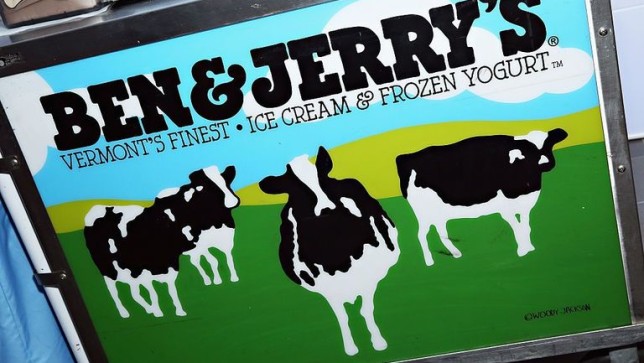The Organic Consumers Association (OCA) reported Tuesday that 10 of 11 samples of Ben & Jerry’s ice cream tested positive for glyphosate, the key ingredient in Monsanto’s Roundup herbicide, and/or AMPA, glyphosate’s main metabolite.

The results originated from independent lab testing of the following flavors: Peanut Butter Cup, Peanut Butter Cookie, Vanilla (2 samples), Cherry Garcia, Phish Food, The Tonight Dough, Half Baked, Chocolate Fudge Brownie, Americone Dream and Chocolate Chip Cookie Dough. Cherry Garcia was the only flavor that tested negative for glyphosate and/or AMPA.
THE GLYPHOSATE BOX
Glyphosate Residue Free Certification
Glyphosate in Popular American Foods
OCA is calling for Vermont-based Ben & Jerry’s, a subsidiary of the international consumer goods conglomerate, Unilever (UN (NYSE) to begin an immediate transition to using only organic ingredients, including milk, in its products or face a national and international consumer boycott.
The groups also call on natural and organic food stores to drop the Ben & Jerry’s brand unless the company commits to transitioning to organic.
OCA International Director Ronnie Cummins said: “Ben & Jerry’s falsely advertises its products as ‘natural’ and its brand as ‘sustainable’ and ‘socially responsible.’ Nothing could be further from the truth.
“Ben & Jerry’s profits are built on the back of an industrial dairy system that poisons the environment and produces pesticide-contaminated food products. Ben & Jerry’s sales, driven in large part by its deceitful claims, damage the organic industry by cutting into the sales of authentic natural, grass-fed and organic producers.”
On July 7, California’s Office of Environmental Health Hazard Assessment (OEHHA) added glyphosate to its list of chemicals known to cause cancer, for purposes of complying with the state’s Proposition 65.
In March 2015, the World Health Organization’s International Agency for Research on Cancer classified glyphosate as a ‘probable carcinogen.’
A report published January 2017, in the journal Nature, linked low doses of glyphosate to non-alcoholic fatty liver disease, suggesting that there is no “safe” level of glyphosate despite otherwise indicated by regulatory agencies.


















